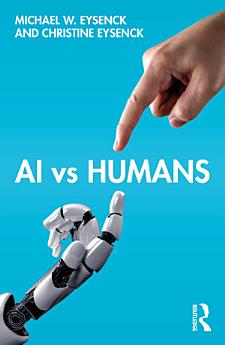AI vs Humans
Mayelana nale ebook
This book evaluates the strengths and limitations of people and AI. The authors’ expertise equips them well to consider this by seeing how well (or badly) AI compares to human intelligence. They accept that AI matches or exceeds human ability in many spheres such as mathematical calculations, complex games (e.g., chess, Go, and poker), diagnosis from medical images, and robotic surgery.
However, the human tendency to anthropomorphise has led many people to claim mistakenly that AI systems can think, infer, reason, and understand while engaging in information processing. In fact, such systems lack all those cognitive skills and are also deficient in the quintessentially human abilities of flexibility of thinking and general intelligence.
At a time when human commitment to AI appears unstoppable, this up-to-date book advocates a symbiotic and co-operative relationship between humans and AI. It will be essential reading for anyone interested in AI and human cognition.
Mayelana nomlobi
Michael W. Eysenck is Professor Emeritus in Psychology and Honorary Fellow at Royal Holloway University of London. He is also Professor Emeritus at the University of Roehampton. He is the best-selling author of several textbooks including Cognitive Psychology: A Student’s Handbook (8th edition 2020), Fundamentals of Cognition (with Marc Brysbaert, 3rd edition 2018), Memory (with Alan Baddeley and Michael C. Anderson, 3rd edition 2020), and Simply Psychology (5th edition 2021). As a cognitive psychologist, he finds it fascinating to compare human cognition with the achievements (and failures) of AI.
Christine Eysenck, a retired teacher of Psychology, has an enduring curiosity about human behaviour. Twenty-first-century living has raised in us questions about the effectiveness of technology and how developments in AI may contribute to the needs of subsequent generations. As a layman in this area, her uncluttered appraisal of aspects of the literature goes some way in addressing the unresolved issue of how good electronic devices really are in replicating human behaviour.







